This article was co-authored by Laura Marusinec, MD and by wikiHow staff writer, Hannah Madden. Dr. Marusinec is a board certified Pediatrician at the Children's Hospital of Wisconsin, where she is on the Clinical Practice Council. She received her M.D. from the Medical College of Wisconsin School of Medicine in 1995 and completed her residency at the Medical College of Wisconsin in Pediatrics in 1998. She is a member of the American Medical Writers Association and the Society for Pediatric Urgent Care.
There are 9 references cited in this article, which can be found at the bottom of the page.
wikiHow marks an article as reader-approved once it receives enough positive feedback. In this case, 100% of readers who voted found the article helpful, earning it our reader-approved status.
This article has been viewed 110,084 times.
Eczema is a skin condition that presents as inflamed, itchy, dry, and oozing skin. Infants normally experience eczema on their cheeks, forehead, and scalp, and it can sometimes move to their arms and legs, or even their whole body.[1] Your doctor can prescribe steroidal creams that can drastically reduce eczema inflammation, but there are also at-home, natural remedies and lifestyle changes that can fight eczema outbreaks. You can try a few simple strategies to keep your baby comfortable and fight the itchy, flaky dryness that comes with eczema.
Steps
Bathing and Moisturizing Your Infant
-
1Give your infant a warm bath every other day. Use lukewarm water and a gentle, mild soap to bathe only the smelly or dirty parts on your baby. Try to keep your baby in the water for about 5 minutes, then take them out.[2]
- Baby shampoos and soaps are usually more mild than normal ones.
- Gentle soaps are better than natural antibacterial products like tea tree oil, which may trigger eczema flareups.
- Avoid bath additives that will further dehydrate your infant's skin, like Epsom salts.
- An oatmeal bath with natural colloidal oatmeal, or Aveeno oatmeal bath packets, can also help.
-
2Pat your baby dry gently with a clean towel. Try not to rub or scrub your baby’s skin to get it dry. Instead, use a soft towel to pay your baby completely dry before you put their clothes on.[3]
- Always use a clean towel to avoid infection.
Advertisement -
3Apply a fragrance-free moisturizer directly after the bath. Focus on areas that are particularly dry or scaly. Try to choose a thick, gel-like moisturizer for the best effectiveness against eczema.[4]
- Always test new moisturizer on a small patch of your child’s skin to make sure they aren’t allergic before you use it all over.
- Look for moisturizers with a high oil content.
- Petroleum jelly is a great moisturizer to choose for eczema.
-
4Keep applying moisturizer 2 to 3 times a day. Eczema is severely dry skin, so adding moisture helps to combat the itchiness and pain. Try to moisturize your baby’s skin 2 to 3 times a day if you can, and pay special attention to the severely red and dry areas.[5]
- Try moisturizing your baby during diaper changes when you are already removing their clothes.
-
5Give your baby a bleach bath twice a week if your doctor recommends it. Consult your doctor before you decide to give your baby a bleach bath. If they tell you to, pour 1⁄4 cup (59 mL) of bleach into a half-filled, warm bathtub. This small amount of bleach added to the bath makes the water soothing to your baby, not harsh. Bathe your baby in the bleach bath twice a week, and avoid contact with their eyes.[6]
- Staphylococcus aureus is a bacterium that lives on the skin of many children with eczema and can occasionally cause flareups. Bleach baths fight off these bacteria.
- Never bathe your baby in bleach without diluting it first.
Warning: Always talk to your infant’s doctor before starting bleach baths. These baths are only for extreme cases of eczema and should not be done without a doctor’s recommendation.
Making Lifestyle Changes
-
1Identify and remove any potential triggers that could be causing the eczema. If your infant’s eczema started up after you switched to a new brand, product, or fragrance of wipes, lotion, soap, detergent, or clothing, they could be allergic to it. Try to identify any new items in your baby’s environment and take them away to see if that helps.[7]
- Tobacco smoke, dry air, pet dander, and pollen can all be triggers as well.
Tip: Your baby’s own saliva can even be a trigger. If you notice they have eczema on their face, try putting a thin layer of petroleum jelly around their mouth to protect them from it when they eat or drool.
-
2Use mild, fragrance-free wipes, detergents, and lotions. Products with a lot of ingredients or fragrances in them can be triggers for eczema. Look for wipes, soaps, laundry detergents, and lotions or creams that say “fragrance-free” on them to avoid making your baby’s eczema worse.[8]
- Products like these are often labeled “free” or “clear.”
-
3Cut your baby’s nails so they don’t scratch themselves. Eczema is irritated by scratching or itching. Use some infant nail clippers to keep your baby’s nails short so they don’t accidentally cause their eczema to flare up or get worse.[9]
- You can also keep your own nails short to prevent accidentally scratching your infant when you change or hold them.
-
4Keep your environment cool and dry. Eczema can be triggered by extreme temperatures and humidity. Try to keep your home around 65 °F (18 °C) as often as you can, and use a dehumidifier if you live in a humid environment.[10]
- Try to keep the humidity in your home around 25% in the summer and 50% in the winter.[11]
- Air conditioners also greatly reduce the moisture in the air.
- Try not to overdress your baby when it’s cold out, as sweat can also trigger eczema.
When to Seek Medical Care
-
1See a doctor for a diagnosis. In most scenarios, you'll want to visit a doctor to get a diagnosis and to learn about treatment options. Some cases of eczema are so mild that you may simply overlook them. In other cases, eczema can be a major irritant and seriously painful for your infant. In these cases, visit your doctor immediately. Remember that eczema can lead to pain, infection, and even scarring if left untreated.
- Depending on how severe your infant's eczema is and what's causing it, your pediatrician may recommend a combination of medications and natural remedies.
-
2Call your pediatrician if your baby's skin is infected. See a doctor immediately if your baby has signs of infected skin, such as increased redness, swelling, drainage of pus, warmth of the skin, fever, or irritability. This may mean your baby needs medical intervention.[12]
- The doctor may prescribe antibiotics to treat your baby's infection. Always follow your doctor or pharmacist's instructions carefully.
-
3Talk to your child's doctor if home remedies aren't helping. In some cases, natural remedies may not be enough to get your baby's eczema under control. Talk to your doctor if you've been trying home remedies for a few days and the symptoms aren't improving or are getting worse. Common medical treatment options for eczema in babies and children include:[13]
- Steroid creams or ointments, which help reduce inflammation
- Antihistamines to control itching
- Oral or topical antibiotics to prevent or treat secondary infections
-
4Ask your doctor before using home remedies. Not all natural remedies may be safe or appropriate for your baby. Before you try any home remedy, such as bleach baths, oatmeal soaks, or essential oils, talk to your doctor about the possible risks and benefits.[14]
- Stop using any natural treatment and seek medical attention if your child has symptoms of an allergic reaction, such as a rash, swelling, itching, or hives.
Warning: Call emergency service or go to the emergency room if you see signs of a severe allergic reaction, such as wheezing, difficulty breathing, confusion, nausea and vomiting, or swelling of the face, lips, tongue, or throat.
Expert Q&A
-
QuestionMy baby has eczema all over his body. What should I do?
 Laura Marusinec, MDDr. Marusinec is a board certified Pediatrician at the Children's Hospital of Wisconsin, where she is on the Clinical Practice Council. She received her M.D. from the Medical College of Wisconsin School of Medicine in 1995 and completed her residency at the Medical College of Wisconsin in Pediatrics in 1998. She is a member of the American Medical Writers Association and the Society for Pediatric Urgent Care.
Laura Marusinec, MDDr. Marusinec is a board certified Pediatrician at the Children's Hospital of Wisconsin, where she is on the Clinical Practice Council. She received her M.D. from the Medical College of Wisconsin School of Medicine in 1995 and completed her residency at the Medical College of Wisconsin in Pediatrics in 1998. She is a member of the American Medical Writers Association and the Society for Pediatric Urgent Care.
Board Certified Pediatrician Follow the instructions in the article. When the eczema is all over the body, bathing gently and moisturizing the skin can be helpful. In addition, the baby may have allergies that are causing the eczema to be all over his body. Talk to your baby's doctor or a dermatologist for further care.
Follow the instructions in the article. When the eczema is all over the body, bathing gently and moisturizing the skin can be helpful. In addition, the baby may have allergies that are causing the eczema to be all over his body. Talk to your baby's doctor or a dermatologist for further care.
Warnings
References
- ↑ https://nationaleczema.org/eczema/children/
- ↑ https://www.aad.org/public/diseases/eczema/childhood/treating/treat-babies
- ↑ https://www.aad.org/public/diseases/eczema/childhood/treating/treat-babies
- ↑ https://www.health.harvard.edu/blog/3-things-you-can-do-when-your-childs-eczema-gets-bad-2017011010996
- ↑ https://www.health.harvard.edu/blog/3-things-you-can-do-when-your-childs-eczema-gets-bad-2017011010996
- ↑ https://www.nationwidechildrens.org/specialties/dermatology/dermatology-resources/eczema-bleach-baths
- ↑ https://www.aad.org/public/diseases/eczema/childhood/treating/treat-babies
- ↑ https://www.healthychildren.org/English/health-issues/conditions/skin/Pages/How-to-Treat-and-Control-Eczema-Rashes-in-Children.aspx
- ↑ https://www.healthychildren.org/English/health-issues/conditions/skin/Pages/How-to-Treat-and-Control-Eczema-Rashes-in-Children.aspx
- ↑ https://www.mayoclinic.org/diseases-conditions/atopic-dermatitis-eczema/expert-answers/baby-eczema/faq-20450999
- ↑ https://extension.umn.edu/moisture-and-mold-indoors/do-you-have-too-much-moisture-your-home
- ↑ https://www.healthychildren.org/English/health-issues/conditions/skin/Pages/How-to-Treat-and-Control-Eczema-Rashes-in-Children.aspx
- ↑ https://www.mayoclinic.org/diseases-conditions/atopic-dermatitis-eczema/symptoms-causes/syc-20353273
- ↑ https://www.mayoclinic.org/diseases-conditions/atopic-dermatitis-eczema/expert-answers/baby-eczema/faq-20450999
- ↑ https://www.ncbi.nlm.nih.gov/books/NBK424896/
- ↑ https://www.aad.org/public/diseases/eczema/childhood/treating/treat-babies
- ↑ https://www.mayoclinic.org/diseases-conditions/atopic-dermatitis-eczema/symptoms-causes/syc-20353273
About This Article
To treat your baby’s eczema naturally, give them a warm bath for up to 10 minutes, which will help to reduce inflammation and make them more comfortable. Try adding chamomile, licorice, or fenugreek to the water to reduce the redness of their skin. However, to avoid irritating their eczema further, don’t use hot water, rub their skin, or bathe them more than once a day. In addition to bathing your baby, you can apply some aloe vera, cocoa butter cream, or an emollient to help heal their skin. Eczema can often be an allergic reaction to certain foods, so try to figure out if your baby has trigger foods, like pasteurized dairy products, refined sugar, chocolate, and yeast, so you can avoid them in the future. For more tips from our Medical co-author, including how to identify different types of eczema, read on!
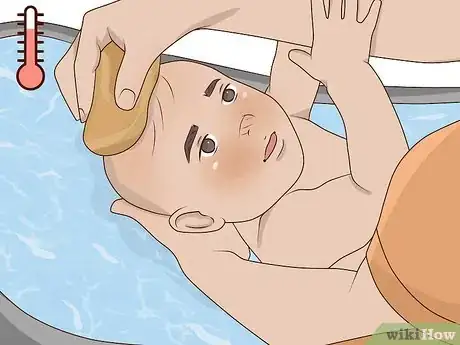
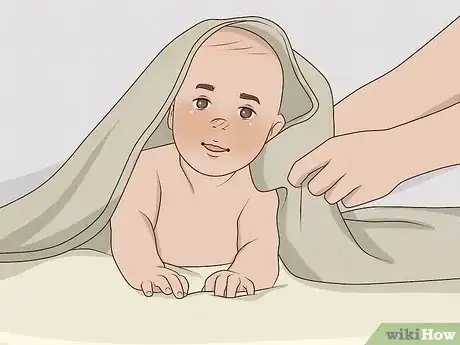

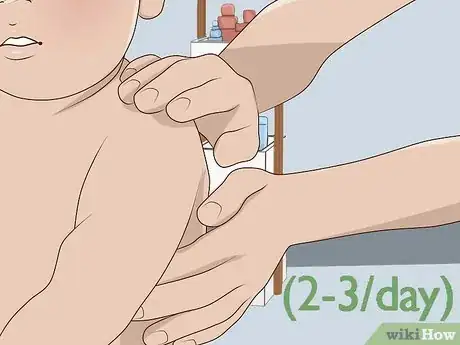
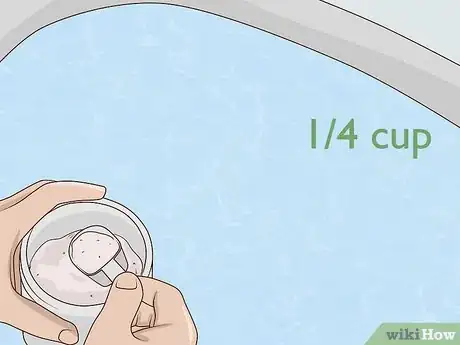
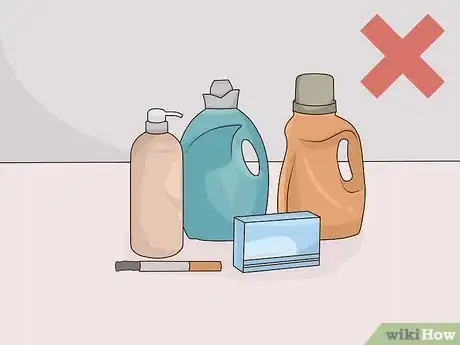
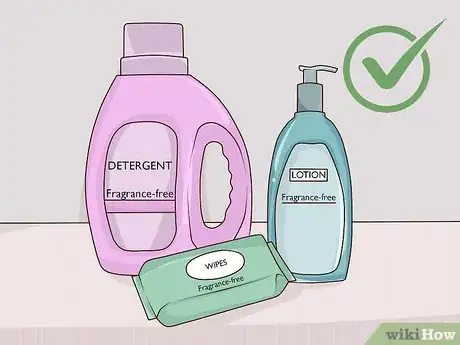
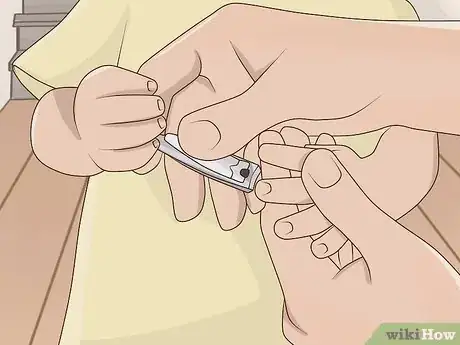

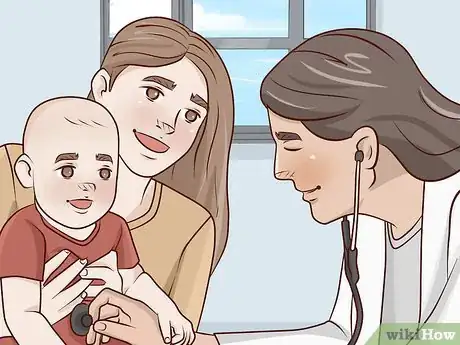
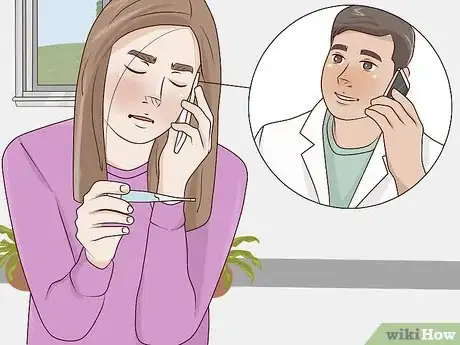
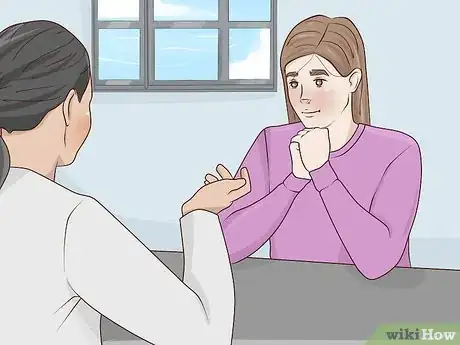
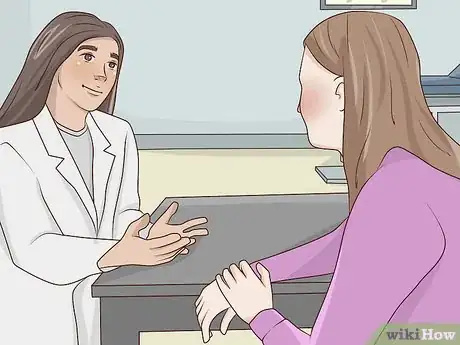


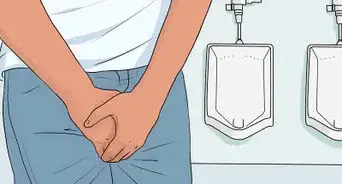
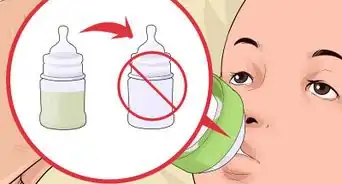
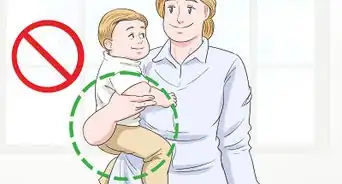




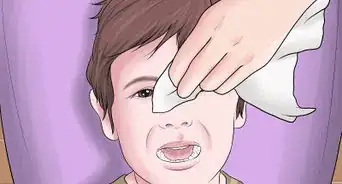

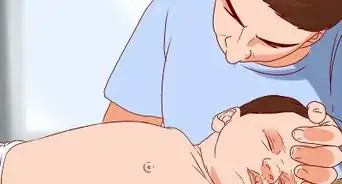
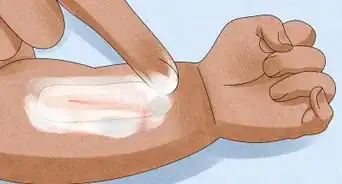











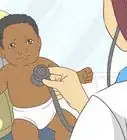
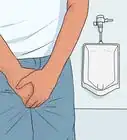
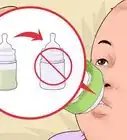



































Medical Disclaimer
The content of this article is not intended to be a substitute for professional medical advice, examination, diagnosis, or treatment. You should always contact your doctor or other qualified healthcare professional before starting, changing, or stopping any kind of health treatment.
Read More...